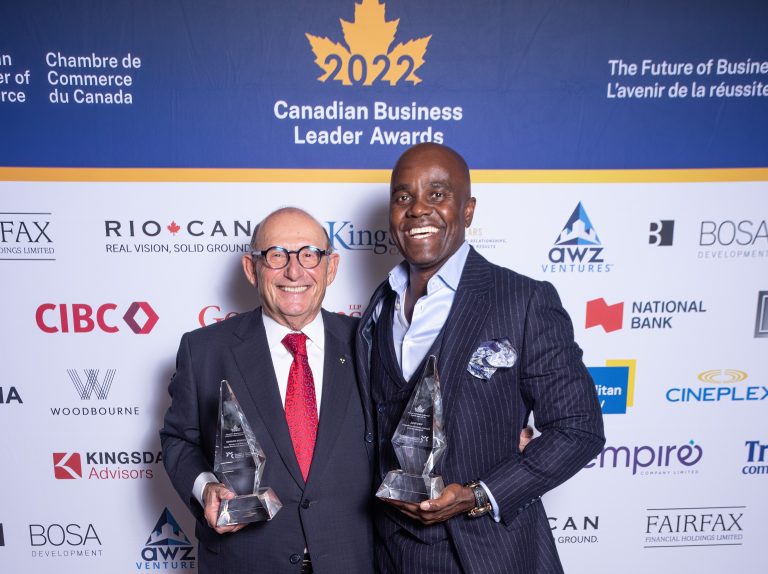Blog /
Canada-U.S. Roadmap Executive Summit: What We Heard
Canada-U.S. Roadmap Executive Summit: What We Heard
We kicked off the second event in our 2023 Executive Summit Series on Monday, March 20 with an in-depth discussion...

We kicked off the second event in our 2023 Executive Summit Series on Monday, March 20 with an in-depth discussion on the Canada-U.S. Roadmap at the Rideau Club in Ottawa.
Our panelists revisited the commitments made by Prime Minister Trudeau and President Biden in February 2021’s Roadmap for a Renewed Canada-U.S. Partnership. They also considered what more can be done to bolster economic ties between our two countries, given shifting geopolitical contexts, renewed protectionist rhetoric in the U.S. and more.
Read on for the Summit’s key takeaways!
Keynote speaker: The Honourable John Baird, Senior Business Advisor with Bennett Jones LLP and Eurasia Group and former Minister of Foreign Affairs
People in politics generally don’t want to go out on a limb – there is a need to be able to be publicly ambitious and if at first you don’t succeed, then try again.
The Honourable John Baird
Key Takeaways:
- The Honourable Perrin Beatty, President and CEO, Canadian Chamber of Commerce began by highlighting that both Canada and the United States benefit from greater North American collaboration.
- The Honourable John Baird discussed that it disappoints him how government doesn’t seem to have much ambition in accomplishing an agenda. It is crucial to have ambition in politics, and to go out on a limb when it is in everyone’s best interests. For instance, there presently does not appear to be any ambition in resolving longstanding issues such as soft wood lumber disputes.
- The U.S. has become so bitterly divided that it is hard to get anything done.
- A major ongoing challenge is seemingly declining levels of support in the U.S. for an integrated economy – we must constantly fight Buy America, which is fundamentally inconsistent with sound macroeconomic policy and trading practices.
- The ongoing war in Ukraine poses a major existential threat to peace and stability in Europe, as well as international peace and security. Canada must step up to the plate and do more.
- The Honourable John Baird highlighted the challenge posed by irregular border crossings into Canada, particularly through Roxham Road. This undermines our territorial sovereignty, as well as support for legal immigration.
- The Honourable John Baird discussed that President Biden may be simply checking a box by visiting Canada and that the announcement of the timing of the visit was pretty telling.
- In order for Canada and the U.S. to get to the stage of having an ambitious and strategic relationship, Prime Minister Trudeau should look at what has worked well in the past. For example, the first 18 months of the Trump administration – the government was ambitious and put their credibility on the line.
- Canada must set an ambitious agenda and propose it to the U.S. We are a critical part of the solution – we cannot just sit back and wait for the U.S. to come to us.
We need to exploit the opportunities in front of us. There are huge opportunities.
The Honourable John Baird
Panel Moderator
Matthew Holmes, Senior Vice President, Policy and Government Relations, Canadian Chamber of Commerce
Panellists
Laura Dawson, Executive Director, Future Borders Coalition
Mike Gladstone, Director, External Affairs Canada, Enbridge
Meredith Lilly, Norman Paterson School of International Affairs, Carleton University
Anne McKinney, VP Americas, U.S. Chamber of Commerce
Key Takeaways
- For this very important bi-lateral meeting to be a success, there needs to be ambition. We need to look beyond small issues and towards new and bigger initiatives. The Canada-U.S. relationship is an existentially significant one for Canada. The impetus for more ambition needs to come from Canada—and we’re not currently doing it.
- Canada’s energy future is deeply connected to the U.S. market and America’s energy future. The convergence of two existential challenges—security and climate change—points towards the need for North American collaboration on energy. Canada and the U.S. can supply energy to allies around the world. To achieve this, governments need to say yes and get out of the way so business can make it happen.
- The U.S. Chamber believes that that the U.S. government needs to get back into the game when it comes to market opening trade agreements. The Indo-Pacific Economic Framework and the Americas Economic Partnership are positive developments, but they are arrangements and not market opening trade agreements. There is an opportunity for the private sector to come together to shape the Americas Partnership.
- Many of the economic issues that are relevant to cross border travel and trade don’t rely on trade agreements. Businesses and governments can come together and make needed modernization, facilitation, and regulatory cooperation commitments if there is political will to do so.
- We’re no longer in a global context of trade liberalization. We are in an era of protectionism and securitization of trade policy. In this respect, Canada is on the defense. We are currently a rule taker, whereas the U.S. and EU are rule makers. However, Canada’s trade policy doesn’t seem to reflect these new realities. Although there are some indications that this is starting to change, a securitized trade agenda does not seem to be in the comfort zone of the current government.
- The idea of a North American trading relationship is in Canada’s best interest, but this requires Canada to take greater interest in Mexico. To date, Canada tended to compartmentalize and focus much more on the U.S. However, Mexico is hugely important due to its market size and complementarity of inputs and services they are able to provide. Additionally, the U.S. government is often organized according to a hemispheric approach that is receptive to trilateral framing.
- The Inflation Reduction Act (IRA) has fundamentally changed the energy transition discussion globally. The IRA’s simplicity is very attractive to investors, especially relative to Canada’s much more complicated system.
- Political views are often expressed through regulatory slow downs – politicians have hidden behind regulatory hold ups as well. The absence of a political commitment to push through and see commitments through has an impact on day-to-day operations of regulatory processes. We need regulatory clarity and political leadership.
We can do hard things, but we need leadership and a vision.
Laura Dawson, Executive Director, Future Borders Coalition
Thank you to our Canada-U.S. Roadmap guests and presenting sponsors.
Be sure to check out all the sessions in all our 2023 Executive Summit Series.
To read more about the advocacy work our Canada–U.S. council is doing to promote growth and improve our shared security and resiliency, click here.
Related News

Employee Education is a Critical Defence Against Cyber Attacks

How Your Organization Can Quantify and Reduce Your Cyber Risk




